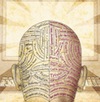Does the Internet make us smarter or dumber?
Amid the silly videos and spam are the roots of a new reading and writing culture, says Clay Shirky.
“The case for digitally-driven stupidity assumes we’ll fail to integrate digital freedoms into society as well as we integrated literacy. This assumption in turn rests on three beliefs: that the recent past was a glorious and irreplaceable high-water mark of intellectual attainment; that the present is only characterized by the silly stuff and not by the noble experiments; and that this generation of young people will fail to invent cultural norms that do for the Internet’s abundance what the intellectuals of the 17th century did for print culture. There are likewise three reasons to think that the Internet will fuel the intellectual achievements of 21st-century society.”
The cognitive effects are measurable: We’re turning into shallow thinkers, says Nicholas Carr.
“A growing body of scientific evidence suggests that the Net, with its constant distractions and interruptions, is […] turning us into scattered and superficial thinkers.
The picture emerging from the research is deeply troubling, at least to anyone who values the depth, rather than just the velocity, of human thought. People who read text studded with links, the studies show, comprehend less than those who read traditional linear text. People who watch busy multimedia presentations remember less than those who take in information in a more sedate and focused manner. People who are continually distracted by emails, alerts and other messages understand less than those who are able to concentrate. And people who juggle many tasks are less creative and less productive than those who do one thing at a time.”
Personally, I am much more convinced by Shirky’s argument. Also I find Shirky’s thinking more concrete and actionable than Nicholas Carr’s, whose gloomy and conservative analysis can only lead, it seems to me, to a completely impossible conclusion: to shut down the web and move back to books.
>> See also these reviews on Carr’s book by The New York Times and Business Week




